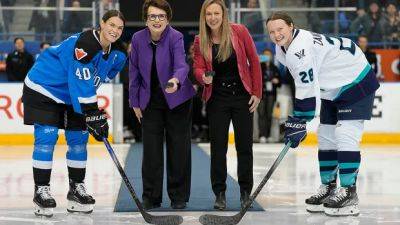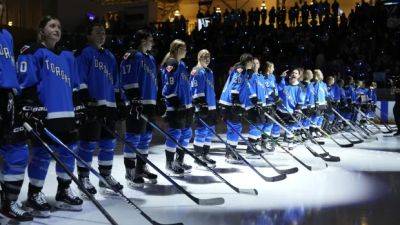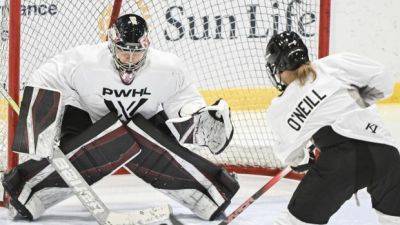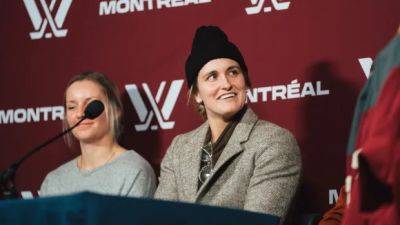PWHL teams release final 23-player rosters ahead of Jan. 1 season opener
All six teams in the Professional Women's Hockey League (PWHL) have finalized their rosters as the league prepares to open its inaugural season on Jan. 1, when Toronto hosts New York at Mattamy Athletic Centre in the first game.
Each team will carry a roster of 23 players under contract and three reserve players this season.
The league previously planned to allow each team to carry two reserve players, but decided to increase the reserve player pool after teams gathered in Utica, N.Y., last week for a pre-season evaluation camp, which included league meetings and three pre-season games for each team.
"Among the camp takeaways was a commitment from the league to provide additional opportunities for players to be a part of the PWHL this season, leading to the decision to increase the number of roster reserves from two to three players per team, which is reflected across all final rosters," Jayna Hefford, the PWHL's senior vice president of hockey operations, said in a statement on Tuesday.
Teams travelled to Utica with 27 players on their roster, meaning each team had to make at least one cut before Monday's deadline. All teams look poised to carry 13 forwards, seven defenders and three goaltenders, in addition to three reserve players.
Reserve players will practise exclusively with their teams this season and can be signed to a short-term contract if they need to be called up in case of injury. The collective bargaining agreement also allows those players to be called up by a different team when required, but they don't have to play against the team they regularly train with.
"There's some intricacies of what we're doing and how difficult it is when you don't have a minor-league system," Hefford told CBC and Radio-Canada








